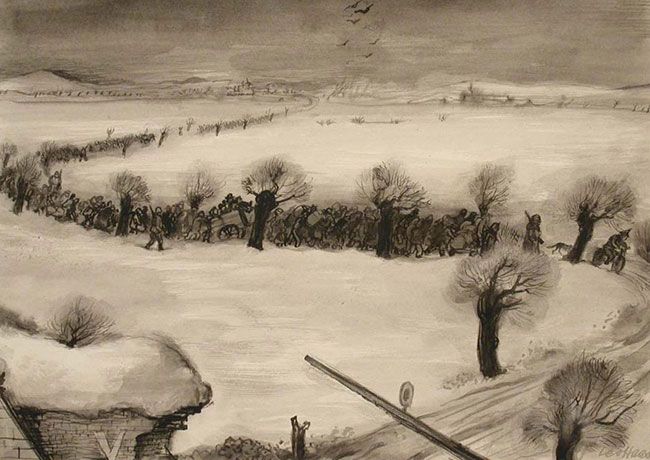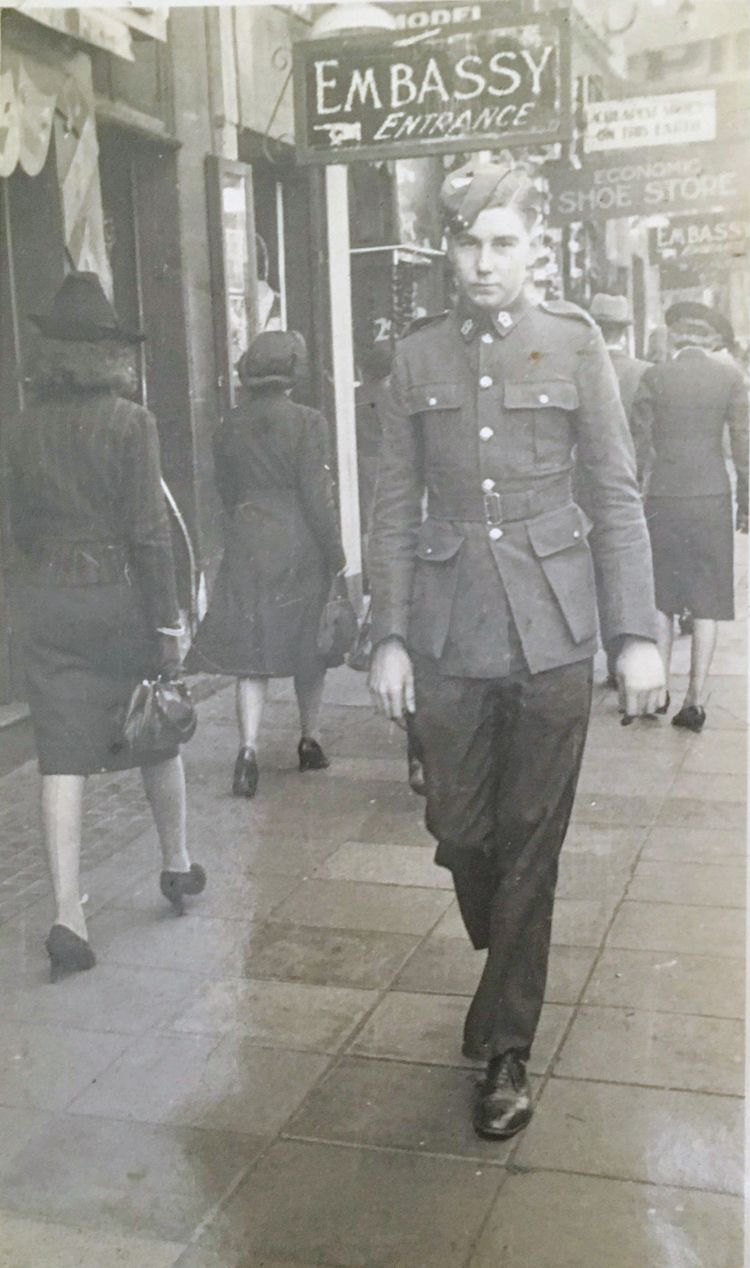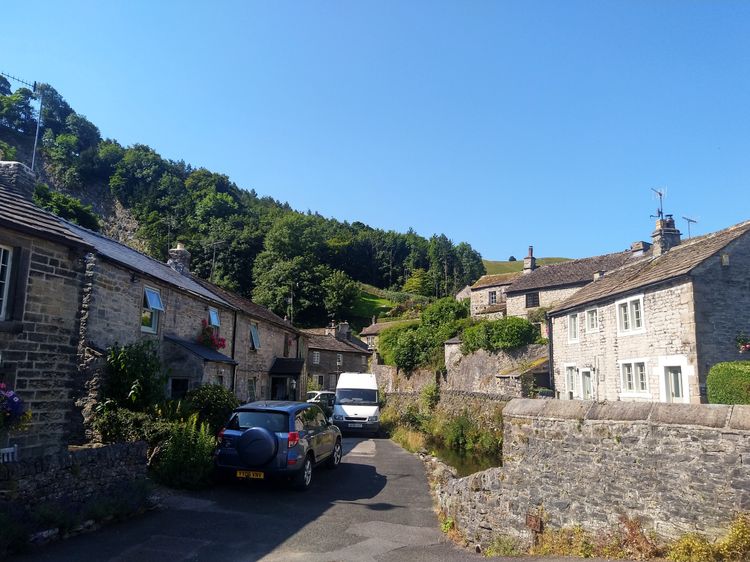Man's Search for Meaning

Hello grownups! I missed you!
I read a lot of books this holiday, and one of them HIT ME RIGHT IN THE SOUL, so I have to tell you all about it: Man's Search for Meaning, by Viktor Frankl. You might have read it already (millions of people have, and it's often listed as one of the most influential books of the 20th century), so please excuse me for being so late to the party ️☺️
Viktor Frankl was a Jewish psychiatrist and neurologist born in Vienna in 1905. In 1942, just nine months after marrying his wife, Frankl and his family were sent to the Theresienstadt concentration camp, and then to Auschwitz and Dachau. His wife, mother, father and brother all died. Frankl himself endured three years of torture, starvation, disease and humiliation in the camps — as he described it, a "multitude of small torments" designed to break the will.
The remarkable insight that he returned with was that even in the most horrific situation imaginable, some prisoners were able to maintain a sense of purpose, and that this made them more psychologically resilient. He quotes Nietzsche: "He who has a why to live can bear almost any how."
There were three main routes to meaning that Frankl saw:
- Creative work and good deeds ("an active life")
- Experiencing what is beautiful, whether nature, art or love ("a passive life")
- Finding meaning in suffering.
Creative work was a core motivator for Frankl throughout his time in the camps. On entry, the prisoners were forced to hand over all of their possessions, down to underwear and wedding rings. Frankl had managed to make it all the way to Auschwitz still carrying a roll of paper in the inner pocket of his coat: a manuscript for a scientific book he'd been writing. He tried to sneak it through, begging an old prisoner for his help. "I must keep this manuscript at all costs; it contains my life's work. Do you understand that?" he said. The other prisoner grinned and said one word back to him. "Shit."
For part of the time, Frankl was put to work digging and laying train tracks. He was aching, freezing and starving, but he would occupy his mind in trying to reconstruct the whole manuscript in his mind. After a few months, he managed to get hold of a few scraps of paper, and wrote down cramped keywords in shorthand. This work helped him to stave off delirium and hopelessness.

Appreciating the beauty in his life also took on spiritual meaning for him. He describes this most movingly when talking about his wife. On long marches through the snow, he would start imagining her face, and having long conversations with her in his mind. "I understood how a man who has nothing left in the world may still know bliss, be it only for a brief moment, in the contemplations of his beloved." He had no idea if she was alive or dead (in truth, she'd already been killed), but "there was no need for me to know; nothing could touch the strength of my love."
Frankl describes many moments like this, of surprising joy and laughter amongst the camps. Of dying prisoners being overwhelmed by the beauty of trees and of men singing opera over the watery soup that was barely keeping them alive.
So there is meaning in both creation and enjoyment, he says. But most profoundly, he also says that there can still be meaning in a life where both of those possibilities are taken from you.
We may also find meaning in life even when confronted with a hopeless situation, when facing a fate that cannot be changed. For what then matters is to bear witness to the uniquely human potential at its best, which is to transform a personal tragedy into a triumph, to turn one's predicament into a human achievement. When we are no longer able to change a situation – just think of an incurable disease such as inoperable cancer – we are challenged to change ourselves.
He doesn't just mean this in an abstract, hand-wavy way. He describes concrete experiences, both in the camps and in his clinical work, of people who were able to find some purpose in their suffering. One was a man who suffered from severe depression after his wife died, who he'd loved dearly. He began to heal after he considered how terrible it would have been if he'd died first, and his wife would have had to suffer grieving him instead. "In some way, suffering ceases to be suffering at the moment it finds a meaning , such as the meaning of a sacrifice."
Crucially, all of these forms of meaning are totally personal. There's no single, universal answer to the "what is the meaning of life" question (sorry, Douglas Adams). Rather, each of us have to respond to the circumstances of our own lives, and the unique potentials that we alone can realise.
We had to learn ourselves and, furthermore, we had to teach the despairing men, that it did not really matter what we expected from life, but rather what life expected from us. We needed to stop asking about the meaning of life, and instead to think of ourselves as those who were being questioned by life – daily and hourly.
Man's Search for Meaning is the manuscript that Frankl lost, and then reconstructed on scraps of paper in the camps. Once he was freed, he was able to dictate the whole thing in just nine days to some assistants, because it was already perfectly written in his mind. It was his way of making meaning of what he'd been through, of having turned his tragedy into something that does good outside of himself.

What I appreciate about Frankl's view is that he's not saying that people suffer because they deserve to, or implying that suffering is some noble thing that we should seek out (in fact, he is very careful to say that choosing to suffer isn't nobility, but masochism). He is very clear about the fact that surviving the Holocaust wasn't just about having a chipper attitude. In fact, there's a pretty dark bit where he says that the ones who made it usually had to lose their scruples in the fight for survival. "We who have come back, by the aid of many lucky chances or miracles... we know: the best of us did not return."
This is no The Secret 🤮 that promises that you can change your life by changing your mindset. In fact, it's a meditation on the opposite: how you can change your mindset in times when you have no control over your circumstances. And how much that matters.
Everything can be taken from a man but one thing: the last of the human freedoms – to choose one's attitude in any given set of circumstances, to choose one's own way.
It's a magnificent book, and it felt like the right time to read it. We've all come through a bloody tough year, buds. I have friends who are healthcare workers who are just exhausted to the bones, and friends who have been doing organisation work amongst communities where people are starving. Right now, so many of the people I love are sick, or are grieving, or are anxious. I know that many of you reading this probably are too. And I wish that I could wrap every single one of you in a deep, long hug (I'd wear PPE!).
Now look, AM I EQUATING COVID WITH AUSCHWITZ? Absolutely not, JEEZ! What prisoners went through in the Holocaust/Shoah are far beyond anything that most of us will ever experience, or can even imagine.
But Frankl's insights do seem pretty damn applicable to times when the universe takes all of your goals and tears them up, CACKLING WILDLY. Times when you can't really make plans, or see the people that you love, or do the things that bring you joy. Times when you're whittled down to the core, and you have to find a way through, regardless.
Anyway. It's a wonderful book, and you should read it.
Wishing you sunsets, long-distance hugs, and the blissful contemplation of someone that you love,
Sam
Note: the cover artwork is a painting by Lev Haas called "Transport Arrival: Theresienstadt Ghetto" from 1942, usually on display at Yad Vashem.
Updates from Sam-land
I'm back in lockdown (seemingly foreverrrrrrrrrrr) but my little December holiday was so full of joy and meaning. Christmas makes wayyyyyy more sense in the northern hemisphere, and 99% of my household surfaces are now covered in twinkly lights. I did lots of wholesome crafting activities (I even got into FELTING, which is basically just poking a ball of yarn repeatedly with a long needle, and it's therapeutic as heck), had long Zoom calls with friends, watched all 11 HOURS of the Lord of the Rings extended edition, read dozens of books (special mention to Deeplight by Francis Hardinge), watched movies (His House on Netflix is terrifying and magnificent), had dance parties in my kitchen (thanks, King Princess), got slightly less sucky at playing the ukulele (sorry, neighbours), and went for a lot of walks. I'm feeling tentatively optimistic for 2021!







Member discussion